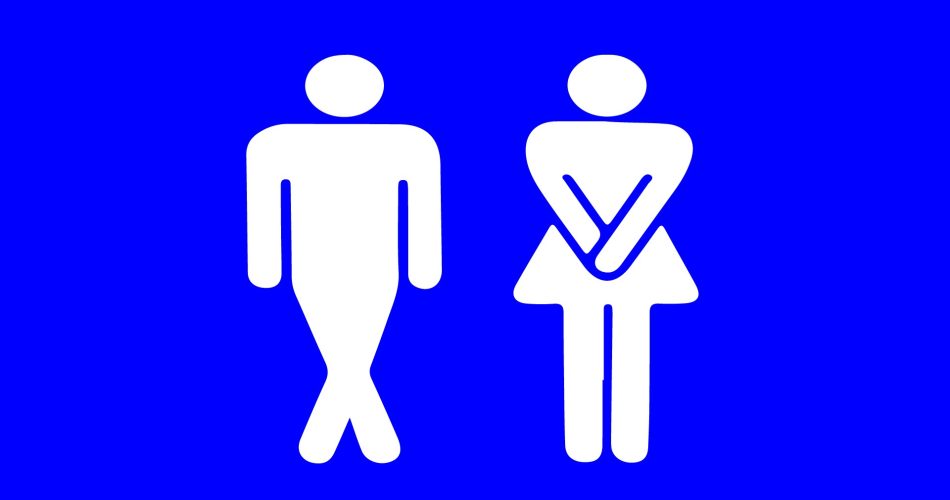Just in case of emergency
The average person pees eight times each day and once at night. However, sometimes you can’t reach a bathroom when the urge strikes because of an inconvenience or whatever, therefore you have to hold it in.
“Sometimes we have no choice but to hold urine past our urge to urinate”, says Brian Norouzi, a urologist at Providence St. Joseph Hospital.
The average adult bladder has a capacity of 300-400 ml. That’s more than a cup of fluids. However, you should expect to produce between 800-2,000 ml of pee every day. As a result, you’ll need to pee several times during the day.
Urination is controlled by both the brain and the bladder, so healthy individuals have some control over when and where they urinate. So, you could try these tricks for holding your pee when there’s no other option to take time before reaching a toilet.
1. Distract yourself
According to Karyn Eilber, MD, a urologist at Cedars Sinai, the easiest approach to hold your urine is to distract yourself. A nice discussion, a heated debate, or a favorite song can all divert your attention away from the bodily sensation of needing to urinate, just as distractions can help with pain, especially for children.
2. Play a game
If chatting or singing aren’t working, try becoming competitive to increase your distraction. Electronic gaming has been shown to alleviate uncomfortable sensations more effectively than passive distractions such as watching television. A guessing game, trivia, a word puzzle, a video game, a card game, or anything in between could be used.
3. Change positions
According to Norouzi, changing to a different posture can relieve pressure on the bladder, making the urge less acute.
He suggests elongating your torso while avoiding overstretching your abs, which can raise pressure. Some people think crossing their legs helps, while others say it makes it worse. Experiment with different options to see what works best for you.
4. Fart
When it comes to bladder pressure, Norouzi believes that passing gas might lower internal pressure and give you more time to get to the toilet. But this will require some careful muscle control.
To fart, relax your anal sphincter muscles while keeping the urethral sphincter, the muscle that controls urine passage out of the bladder, tightly closed.
5. Turn down the A.C.
When it’s too cold, your body produces more urine. Cold diuresis is a condition that occurs as a result of blood pressure fluctuations in extremely cold conditions, putting you in danger of hypothermia.
Even if it’s not too cold outside, raising the temperature won’t hurt and may be a welcome distraction.
6. Drink less
According to Eilber, the easiest approach to avoid having to hold your pee is to plan ahead when you know you won’t have access to a restroom.
Excess water, which is more than your body requires to operate, is immediately excreted, usually within 5 to 20 minutes. If you’re going on a long car journey or giving a speech, it’s a good idea to avoid drinking for an hour or two before you leave because a properly hydrated individual would be able to spend at least three hours without peeing.
7. If you can, go even if you don’t think you have to
It’s a good idea to use the restroom if you have access to one, such as at a rest stop on a road trip. This is called preemptive voiding which will allow you to wait longer until you reach a bathroom if you let your bladder empty entirely.
8. Train your bladder
If you frequently find yourself in situations where you need to contain your pee, bladder training may be beneficial, according to Eilber. This entails urinating at predetermined times, such as every hour.
You gradually extend the time by five minutes each week until you’re peeing at a convenient and healthy interval.
“You’re physically stretching out the muscle”, Eilber explains, allowing the bladder to comfortably store more urine. You’ll see a difference after around six weeks.
9. Pee completely
When you finally go to a toilet, you may find it difficult to let the pee flow. According to Norouzi, this is because your pelvic floor muscles have been tightened forcefully to keep urine in.
Allow 5-10 minutes on the toilet to thoroughly relax your muscles and ensure that your bladder is completely empty, according to the doctor.
Is it bad to hold your pee for a long time?
It’s fine to hold your pee in an emergency, but it shouldn’t become a habit, according to Norouzi.
Delaying urinating can cause your bladder muscles to weaken, making you more susceptible to illnesses including urinary tract infections. Plus, your bladder will eventually be unable to hold any more urine.
Therefore, distracting yourself may help temporarily, but if you delay urinating, you risk having problems sooner or later, such as damaging your muscular control.
Source insider.com
